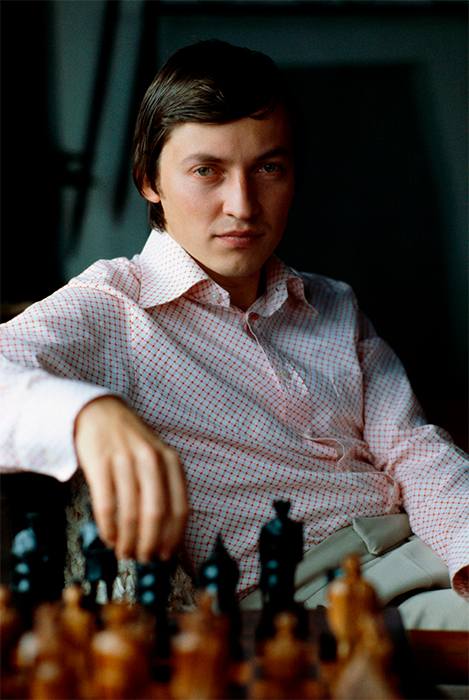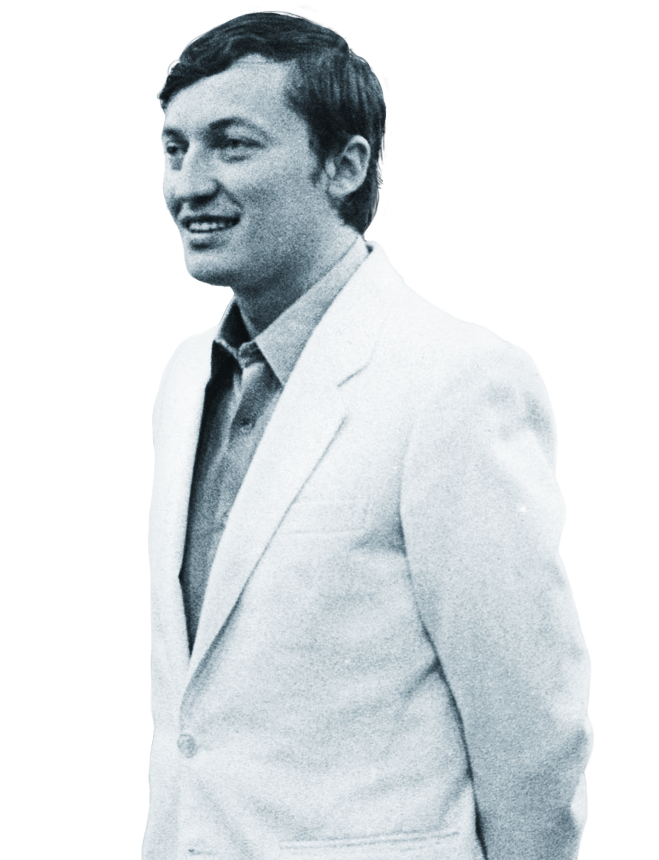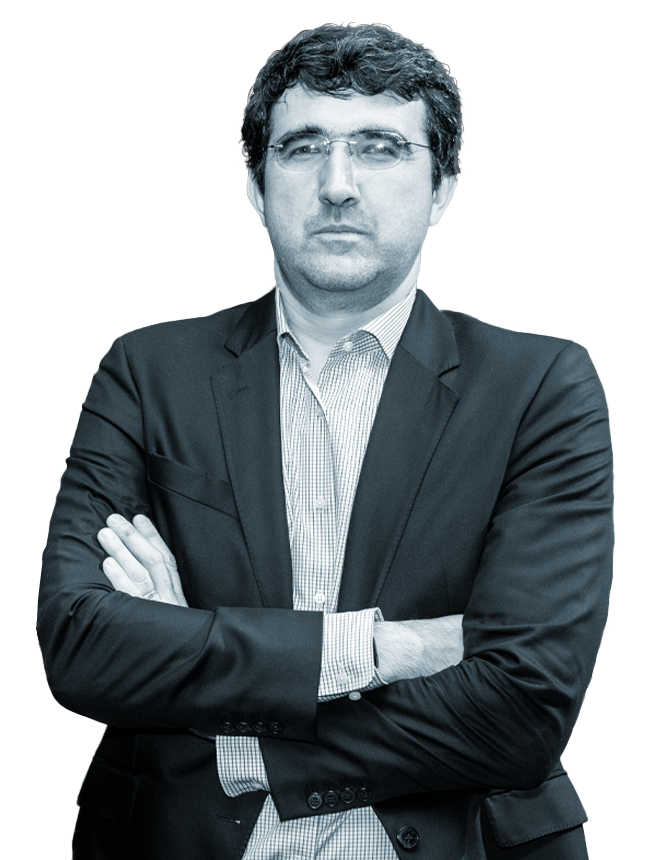Anatoly Karpov
Biography (1951)
Born in Zlatoust (Ural Region, USSR) in 1951, Anatoly Karpov showed great promise from the very start of his career. After a series of excellent results in various competitions, including the Interzonal in Leningrad (1973), he qualified for the Candidates matches. Although Karpov stated “it is not my cycle” on a few occasions, he confidently beat Polugaevsky (+3-0=5) and Spassky (+4-1=6), then prevailed over Korchnoi (+3-2=19) and earned the right to challenge Fischer.After Fischer refused to defend his title, Karpov was crowned as the 12th World Champion. He retained his crown for over ten years, defeating Korchnoi in the title matches in Baguio (1978) and Merano (1981). The 1984–1990 Karpov–Kasparov rivalry (5 World Championship matches, 167 games) defined an entire era in chess history. In 1988, Karpov won the first FIDE-recognized Rapid Chess Championship in Mexico. In the 1990s, Karpov became a three-time FIDE World Champion (1993, 1996, and 1998).

Notable game
This was Game 17 of the 1978 World Championship Match in Baguio
Play like a champion!
Black to move.
Examine this position and decide on your next move. To see the correct answer, click the button below.
Want chess advice?
On Karpov
Max Euwe
Karpov's games may initially seem startling due to their seemingly illogical strategy, but soon it becomes clear that his play is, in fact, extremely logical.
Mikhail Botvinnik
Many experts consider Karpov to be a rationalist, an uncommonly cold-blooded fighter, to whom emotions are completely alien. No, the opposite can be affirmed: Karpov is emotional, like many people, but he masters and controls himself well, creating a false impression.
Mikhail Tal
He is like a tank that cannot be diverted from his goal. His iron persistence is torture for the faint-hearted.
Garry Kasparov
His deep, infiltrating style, subtle positional feeling, extraordinary persistence, practicality, and flexibility rapidly raced him to the very summit of chess.
Vladimir Kramnik
Half in earnest and half in jest, he has disproved a postulate of Steinitz which states: 'A player who has an advantage is obliged to attack under the threat of losing this advantage.' Karpov, while holding an advantage, would often refrain from moving, yet his advantage would still increase! In my opinion, no players before or after him have been able to achieve this.

Want more?
Read
.jpg)
Karpov on Karpov: Memoirs of a chess world champion
1990
.jpg)
Karpov, Anatoly My Best Games
2007





